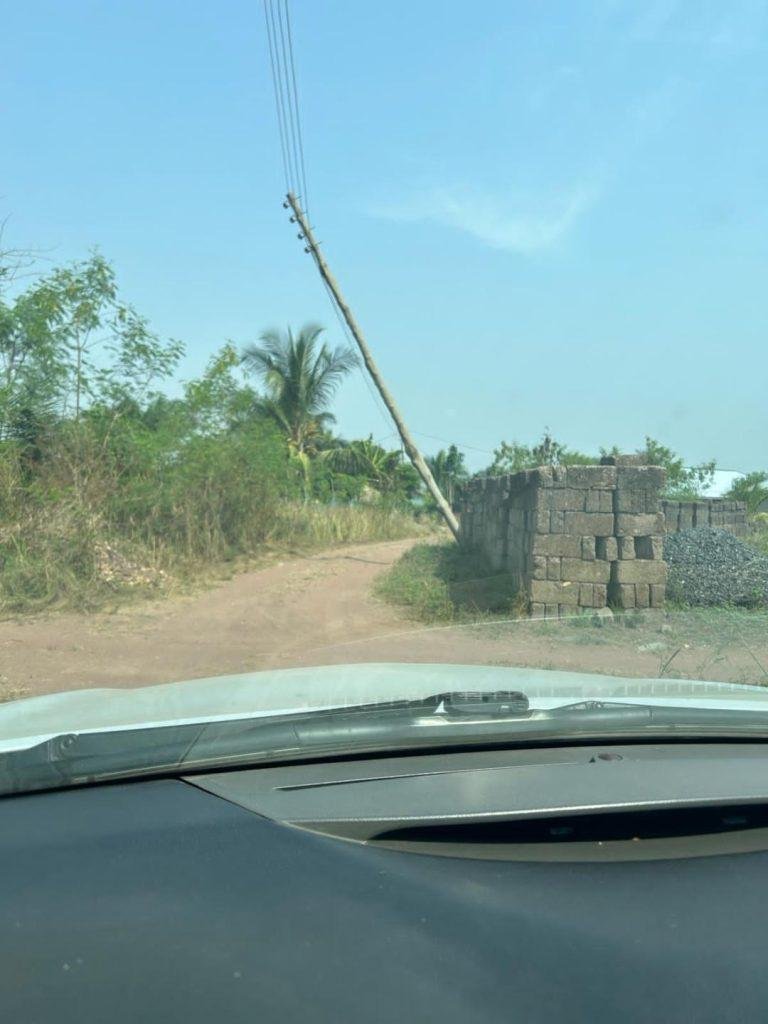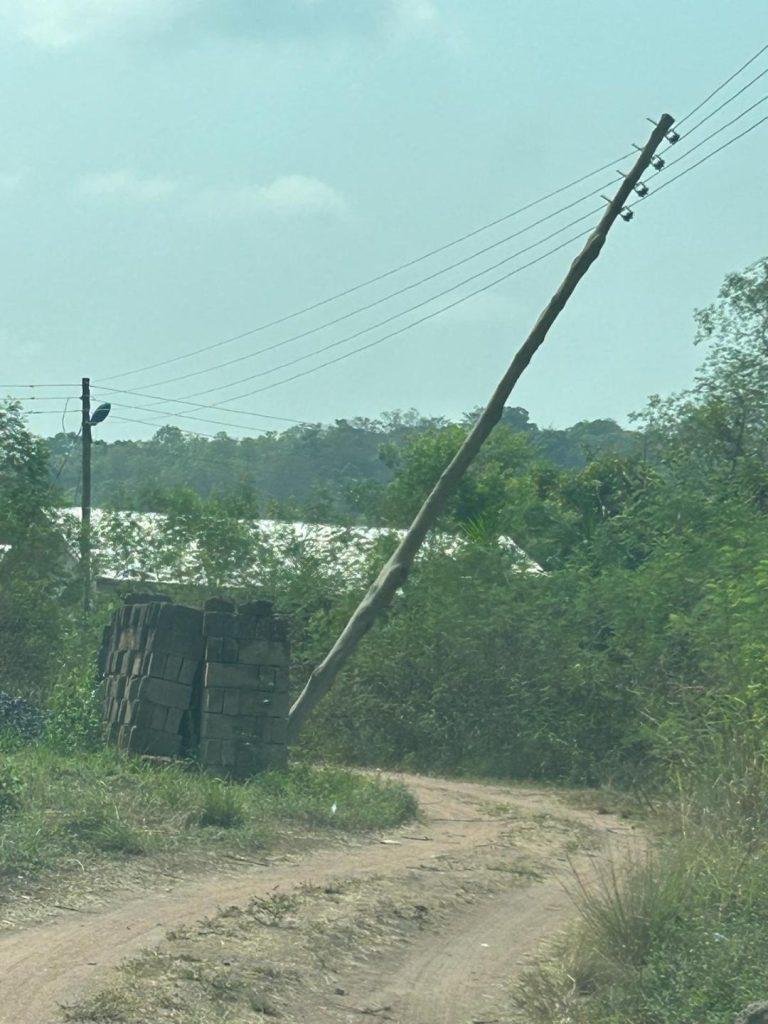Editorial
Fix tilted electric pole at Sokode-Gbogame Rome

Tilted electric pole at Sokode Gbogame Rome
Dear Editor,
I would like to draw the attention of the Electricity Company of Ghana (ECG) in the Ho municipality of a tilted live electric pole located at Sokode-Gbogame Rome
The tilted electric pole was initially reported to ECG exactly a year ago by the residents afterwards, which saw an initial assessment from the company.

However, despite the frequent visits of ECG officials to the area for regular maintenance, the pole seemed abandoned as it still remains a threat to residents, passersby and visitors.
The abandoned pole if not swiftly addressed could lead to loss of lives and properties of residents especially during a rainfall or a thunderstorm.

Residents of Sokode -Gbogame Rome are therefore calling on the authorities of
ECG in the municipality and by far the region to as a matter of urgency take appropriate steps to fix the tilted electric pole.
When the pole is fixed, residents would heave a sigh of relief as they had lived in fear for about a year.
I believe when much efforts are put into fixing the pole, it would be completed in no time and help save lives and property of residents.
Yayra Mensah,
Sokode- Gbogame.
Editorial
Kudos to Ho Teaching Hospital staff, but …
Dear Editor,
If there is any group of professionals that get bad-mouthed the most, then you are referring to nurses and medical doctors assigned to public hospitals across the country.
For this particular letter, I want to sing the praises of this same group of professionals that work at the Ho Teaching Hospital, famously known as Trafalgar.
Despite the work load and the mass casualties received at the emergency ward of the hospital, the welcoming nature of the nurses and the professional touch by the doctors can’t be ignored. My personal experience has got me travelling from my base in Accra to seek medical services from these professionals.
Special mention has to be made of the likes of Precious of the Pharmacy Department, Dr Brandon Banor (a maxillofacial resident) of the Dental unit, male nurse Justice assigned to the female surgical ward. Words cannot really do justice to their affable, professional caring nature. A simple thank you is all that I can say.
In the same vein, I can’t but call out the bad attitude of the auxiliary staff and contractors of the hospital.
Chief among them is some of the contracted bank staff that handle the payment section of the hospital and the patient registration section (those that check the status of the patient as to whether they are fee paying patients or NHIS sponsored).
The attitude at times leaves a bad taste in the mouth. One such occurrence was a night staff of the registration section who had her legs on the office table whilst talking to patients.
The CEO of the hospital needs to shine his torch light on this support sections before they erode the awesome performance of the direct medical staff of the hospital.
Thank you for the space.
Kwesi Manu
Accra
Editorial
Develop policies to address disability concerns
Dear Editor,
AT the beginning of the year, when I went to the bank to deposit money into my uncle’s account, I observed a very sad situation where a man in a wheelchair struggled to navigate his way around the facility.
This is because the structure is disability unfriendly.
As I stood and watched how the man struggled to move his wheelchair, I felt sad and wondered if this is how the life of a disabled person should be. It becomes worse if there is no one to offer help.
In Ghana, People With Disabilities (PWDs) are often treated differently and are often subjected to all forms of discrimination.
Most of these people find themselves in such a situation as a result of unfortunate happenings such as accidents and injuries.
It is, therefore, not appropriate for anyone to discriminate against them. Discrimination against such persons take many forms, including how buildings are constructed.
Most of the public structures are not disability friendly and impede their movement.
As a country, we should consider the PWDs in designing our structures. I also think that there should be a national policy that seeks to address this issue.
I have a strong conviction that when such a policy is developed by the government, people with disabilities would feel appreciated and also promote social inclusivity.
Ray,
Kasoa







